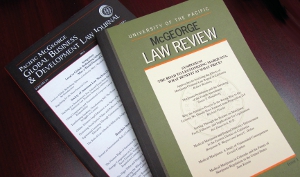Corporate Nonrecognition Provisions: A Comparison of the United States and Canadian Tax Regimes
Document Type
Article
Publication Date
1999
Abstract
This article compares the rules governing the federal income taxation of corporate reorganizations in Canada with those in the United States, including transfers of property to a corporation, corporate divisions, share-for-share exchanges, amalgamations or mergers, recapitalizations, and corporate dissolutions. The paper outlines the provisions governing a particulartype of corporate transaction, compares the Canadian tax results with those of the United States, comments on any differences between particular tax provisions, and examines the practical implications of these differences. The authors conclude that although there are a number of parallels between the U.S. and Canadian tax systems, fundamental differences exist that change the assumptions underlying tax planning in the two countries. The North American Free Trade Act (NAFTA)l makes a basic understanding of the similarities and differences between the Canadian and U. S. tax systems and their respective corporate nonrecognition provisions increasingly important to Canadian corporate tax counsel.
Publication Title
DALHOUSIE L.J.
ISSN
2563-9277
Volume
22
Issue
1
First Page
5
Recommended Citation
Christine Manolakas and Catherine Brown, Corporate Nonrecognition Provisions: A Comparison of the United States and Canadian Tax Regimes, 22 DALHOUSIE L.J. 5 (1999)



